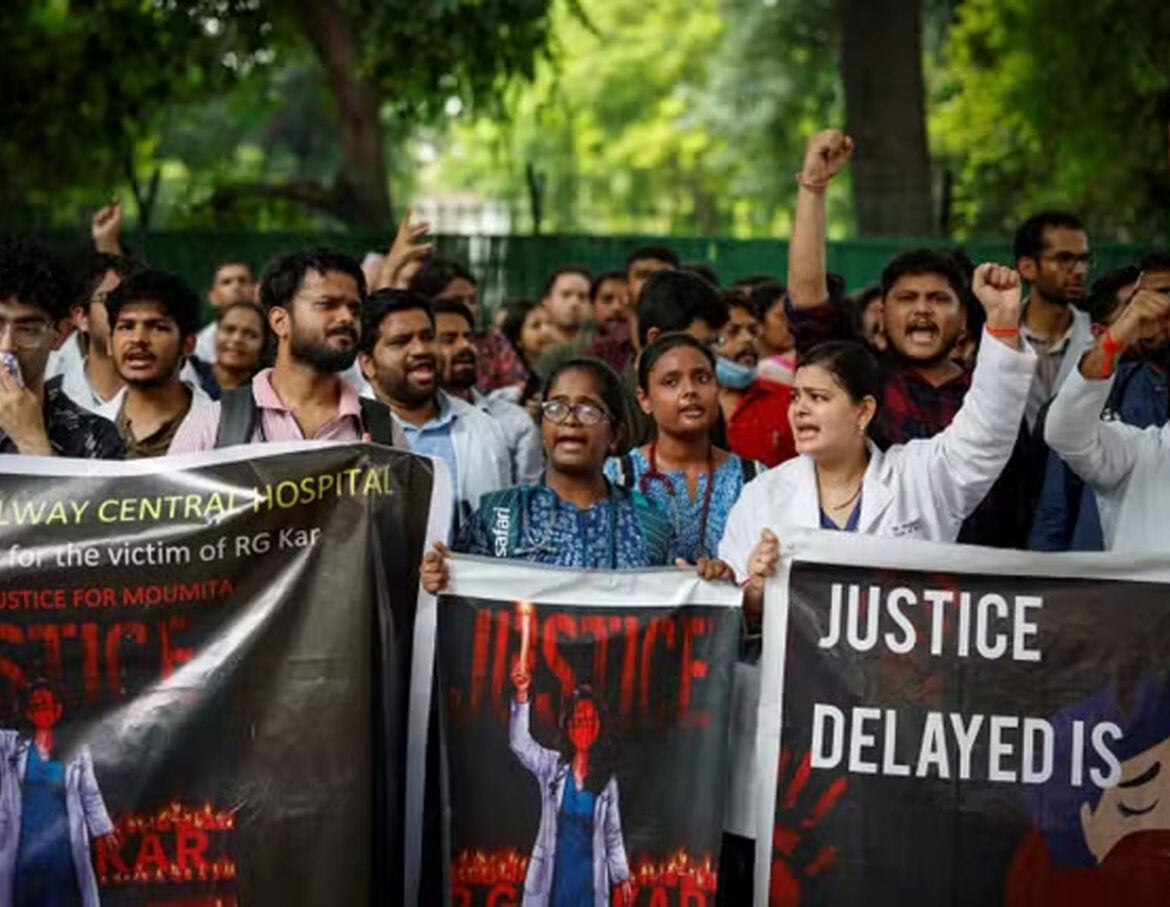A court in Kolkata, India, on Saturday found 33-year-old Sanjoy Roy guilty of the rape and murder of a trainee doctor, a heinous crime that triggered widespread protests and hospital strikes last year.
The victim’s bloodied body was discovered in a seminar room at a government hospital in Kolkata in August, drawing nationwide attention to the persistent issue of violence against women in India, the world’s most populous country. The case led to calls for increased security in government hospitals, with thousands of citizens joining doctors in protests across Kolkata and other cities.
Fast-Tracked Trial Ends in Conviction
Roy, a civic volunteer at the hospital, was arrested a day after the crime. His trial, expedited through India’s often slow legal system, concluded arguments last week. On Saturday, presiding judge Anirban Das announced Roy’s conviction for rape and murder, with sentencing scheduled for Monday.
Despite his conviction, Roy maintains his innocence, claiming, “I have been framed.”
Public Outcry for Death Penalty
Roy’s arrival at the courthouse was met with chants of “Hang him, hang him” from protesters, held back by police. The victim’s family echoed the sentiment, demanding the death penalty for Roy. The victim’s mother expressed the family’s anguish, stating, “The common man will lose faith in the judiciary if he is not handed down the death penalty.”
Her father added, “He brutally snuffed out the life of our daughter. He deserves the same fate.”
Nationwide Protests and Reforms
The gruesome attack sparked outrage comparable to the 2012 Delhi bus gang rape and murder case, which had also ignited weeks of protests. Doctors across West Bengal staged prolonged strikes demanding justice and better security measures in government hospitals.
The protests led to the Supreme Court of India establishing a national task force to recommend safety enhancements in public healthcare facilities.
As the nation awaits Monday’s sentencing, the victim’s family and protesters hope for a verdict that serves justice and acts as a deterrent against such crimes.



